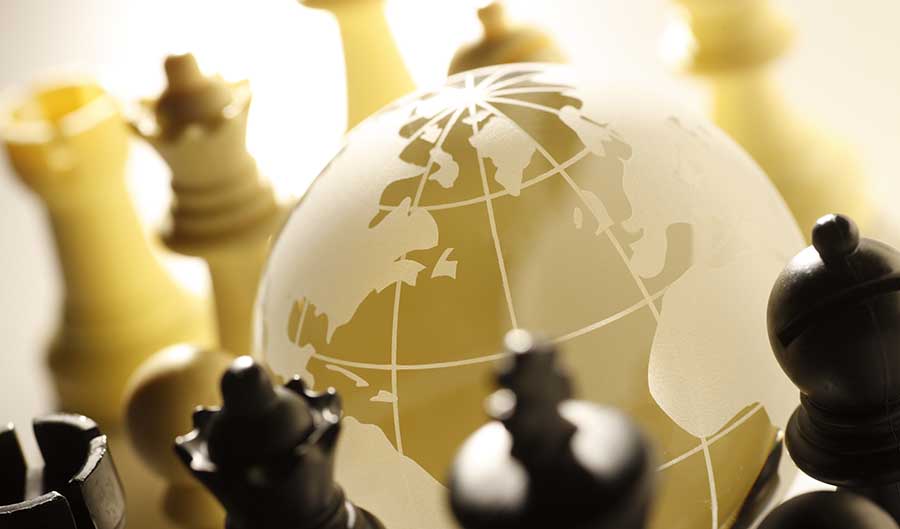
Dan Steinbock, Founder, Difference Group
Oct 14, 2016
In Europe, Asia, and South America, preferences for either Clinton or Trump differ based on the candidates’ views on trade, the economy, and foreign policy doctrine. Though Clinton is the preferred candidate in most areas, whoever the next U.S. president is will face significant challenges on several continents.
Fidel Ramos, Member, ASEAN Eminent Persons Group
Oct 13, 2016
Three months ago, the Permanent Court of Arbitration in The Hague ruled that there was no legal basis for China to claim historic rights to the resources in the West Philippine Sea (also known as the South China Sea), and thus that the Philippines has exclusive rights to the territory. China rejected the ruling, and an icy chill overcame the once-friendly bilateral relationship. It is time to bring back some warmth.
Chen Jimin, Guest Researcher, Center for Peace and Development Studies, China Association for International Friendly Contact
Oct 13, 2016
Despite their differences as argued by Clinton and Trump, the televised encounter showed that protecting the interests of the United States will be the objective of whoever wins the White House.

Richard Weitz, Senior Fellow, Hudson Institute
Oct 13, 2016
Recent speeches given to the UN General Assembly by the U.S. and China illustrate sharp differences in areas such as domestic political systems, appropriate roles and relationships in world politics, and dispute resolution. Russia backed China on many points that the U.S. opposes. These disagreements will continue to play a large role in shaping the international arena.

David Shorr, a strategic thinker and veteran program manager
Oct 13, 2016
American foreign policy debates tend to focus disproportionally on the Middle East. To correct this tendency, the Obama administration’s adopted the so-called pivot to Asia (aka “rebalancing”): to refocus U.S. policy in proper proportion to the full range of the nation’s challenges and interests. Indeed, this broader perspective on today’s interconnected world and diligent approach to building the necessary coalitions, are the main elements that distinguish Barack Obama and Hillary Clinton’s pragmatic approach from the Republicans’ bullheaded approach.

Ted Galen Carpenter, Senior Fellow, Randolph Bourne Institute
Oct 12, 2016
Ted Galen Carpenter discusses the tensions between the U.S., China, and other Asian nations involved in the South China Sea dispute. The U.S. military policy and support initiatives regarding the Philippines, South Korea, and Vietnam are outlined, and Carpenter explains the negative effect this may have with Chinese relations. While the regional activity does appear to be balancing behavior, it also indicates that littoral states are uneasy of Beijing’ conduct in the South China Seas.

Yuan Peng, Vice President, Chinese Institute of Contemporary International Relations
Oct 11, 2016
Evolving circumstances mean that new approaches are essential to maintain the momentum that ties between the two countries have enjoyed for 30 years. If Beijing and Washington can chart a new course forward and institute workable frameworks, then the relationship may well be on track to scale new heights.
Marianne Ojo, Visiting Professor and Post-doctoral Researcher, George Mason University
Oct 07, 2016
Marianne Ojo analyzes the effect that foreign affairs, national security, and economic concerns have on the narratives present in the U.S. Presidential debates. Just how devastating could Trump be for the U.S economy? The financial markets are preparing and testing the waters, and it can be speculated that the markets will adjust if Trump wins the election despite initially reacting with volatility.
Brahma Chellaney, Professor, Center for Policy Research
Oct 06, 2016
The strong tides of anti-establishment anger have shaken politics to its core in a number of Western democracies, as symbolized by the British vote to leave the European Union and the rise of Donald Trump in the United States. Authoritarian capitalism, on the other hand, usually pretends to be meritocracy offering competent governance and economic opportunity for all. In reality, it entrenches corrupt oligarchies that are answerable to no one and that employ ultra-nationalism as the legitimating credo of their monopoly on power.
Luo Yongkun, Research Associate, China Institutes of Contemporary International Relations
Oct 03, 2016
The Chinese position of resolving disputes with a dual-track approach has been accepted by ASEAN countries. The two sides have important common understanding on jointly maintaining peace and stability in the South China Sea, and notions that China is trying to split ASEAN and that China is seeking hegemony in the South China Sea have effectively been deflated.
Back to Top

- China-US Focus builds trust and understanding between the U.S. and China through open dialogue among thought leaders.
- Our Offerings
- Topics
- Videos
- Podcasts
- Columnists
- Research Reports
- Focus Digest
- Stay Connected
-
Thanks for signing up!
- Get the latest stories from China-US Focus weekly.